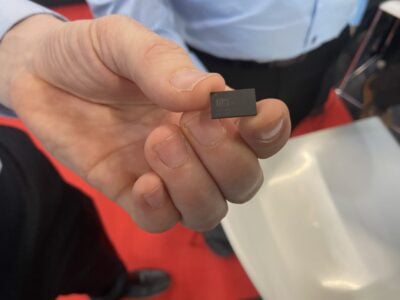
Method could pave way for lower cost, more flexible devices
They oxidize and stop working if exposed to oxygen and moisture. This is why electronics in solar cells and TVs, for example, must be covered with a rigid, thick barrier such as glass or expensive encapsulation layers.
However, in new findings published in the journal Science, Georgia Tech researchers have introduced what appears to be a universal technique to reduce the work function of a conductor. They spread a very thin layer of a polymer, approximately one to 10 nanometers thick, on the conductor’s surface to create a strong surface dipole. The interaction turns air-stable conductors into efficient, low-work function electrodes. The commercially available polymers can be easily processed from dilute solutions in solvents such as water and methoxyethanol.
“These polymers are inexpensive, environmentally friendly and compatible with existent roll-to-roll mass production techniques,” said Bernard Kippelen, director of Georgia Tech’s Center for Organic Photonics and Electronics (COPE). “Replacing the reactive metals with stable conductors, including conducting polymers, completely changes the requirements of how electronics are manufactured and protected. Their use can pave the way for lower cost and more flexible devices.”
To illustrate the new method, Kippelen and his peers evaluated the polymers’ performance in organic thin-film transistors and OLEDs. They’ve also built a prototype which they claim to be the first-ever, completely plastic solar cell.
“The polymer modifier reduces the work function in a wide range of conductors, including silver, gold and aluminum,” noted Seth Marder, associate director of COPE and professor in the School of Chemistry and Biochemistry. “The process is also effective in transparent metal-oxides and graphene.”
COPE is a collaborative effort of Georgia Tech professors in the Colleges of Engineering, Sciences and the Ivan Allen College of Liberal Arts. The center is working on the next generation of electronic devices in order to save energy, reduce costs, increase national security and enhance the quality of the environment. Researchers from the groups of Georgia Tech professors Jean-Luc Brédas and Samuel Graham, as well as Princeton University Professor Antoine Kahn, also contributed to the new study.
Visit the Georgia Tech university at www.gatech.edu
 If you enjoyed this article, you will like the following ones: don't miss them by subscribing to :
eeNews on Google News
If you enjoyed this article, you will like the following ones: don't miss them by subscribing to :
eeNews on Google News




